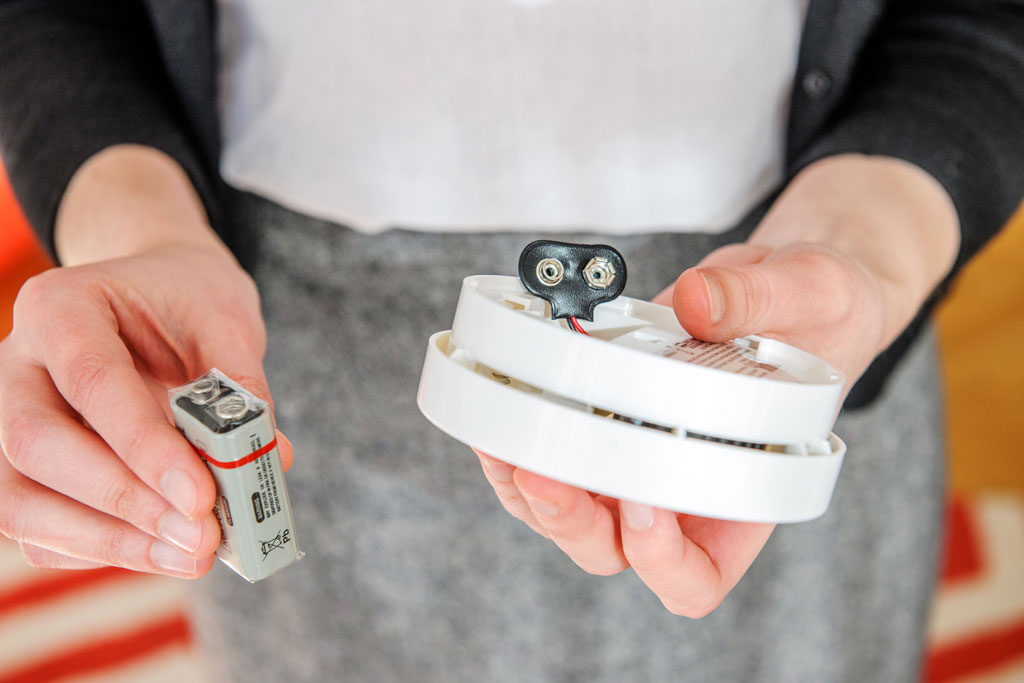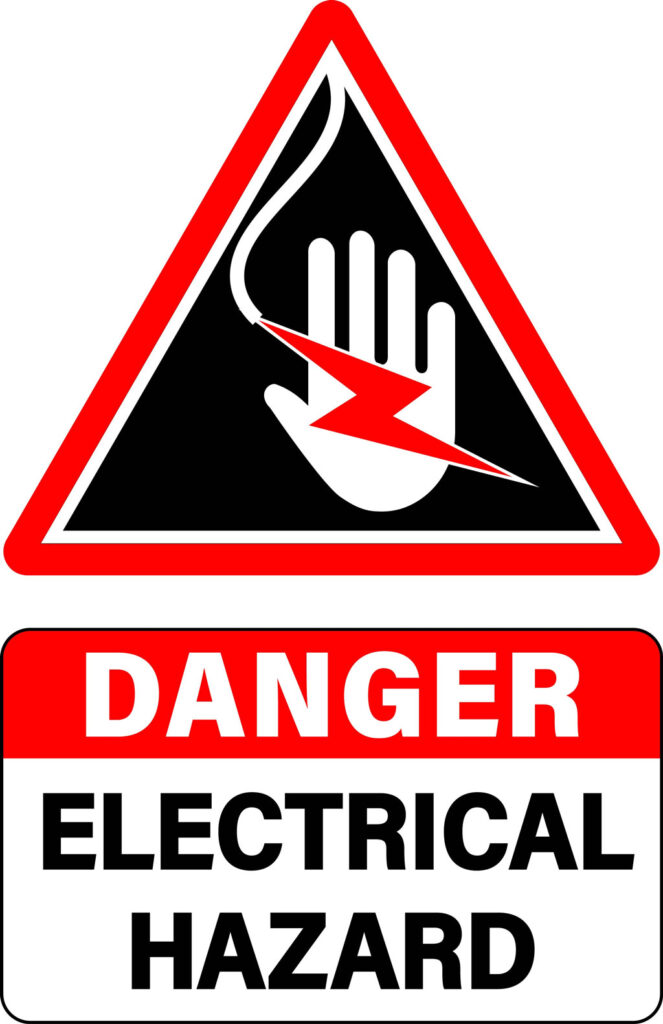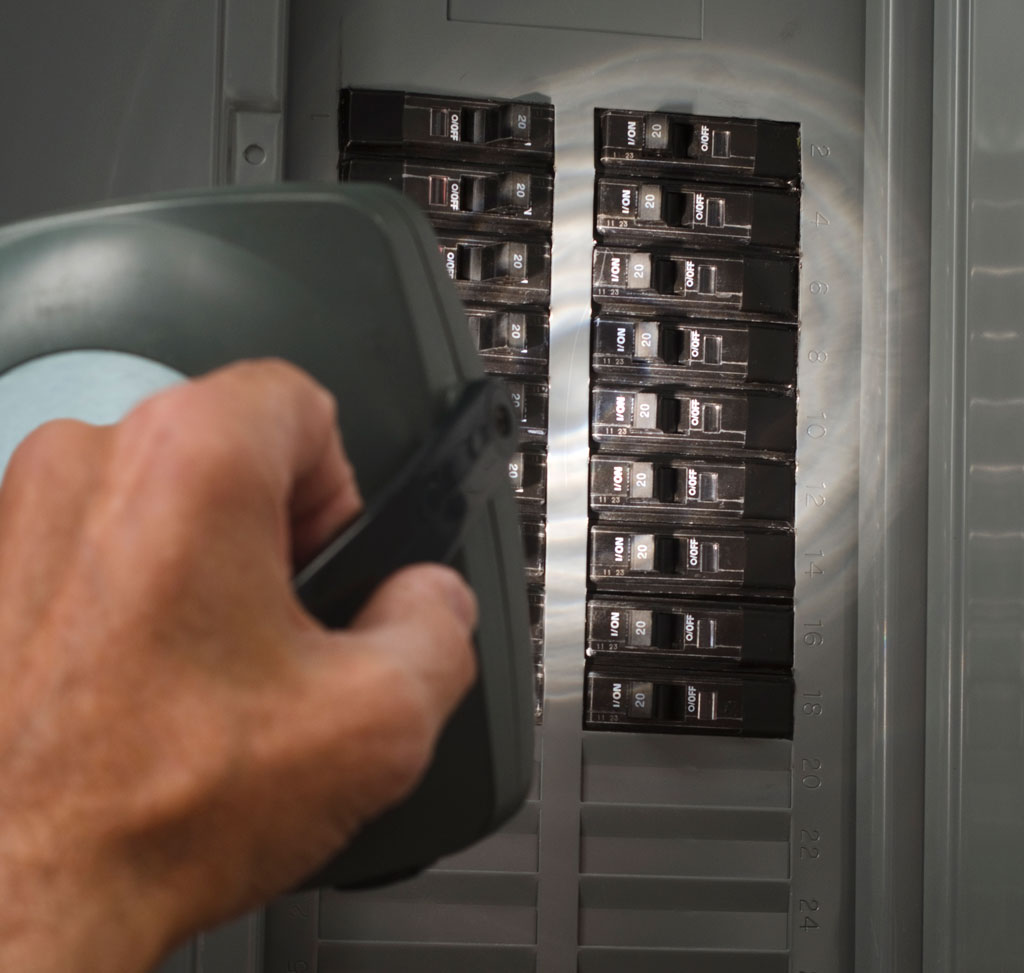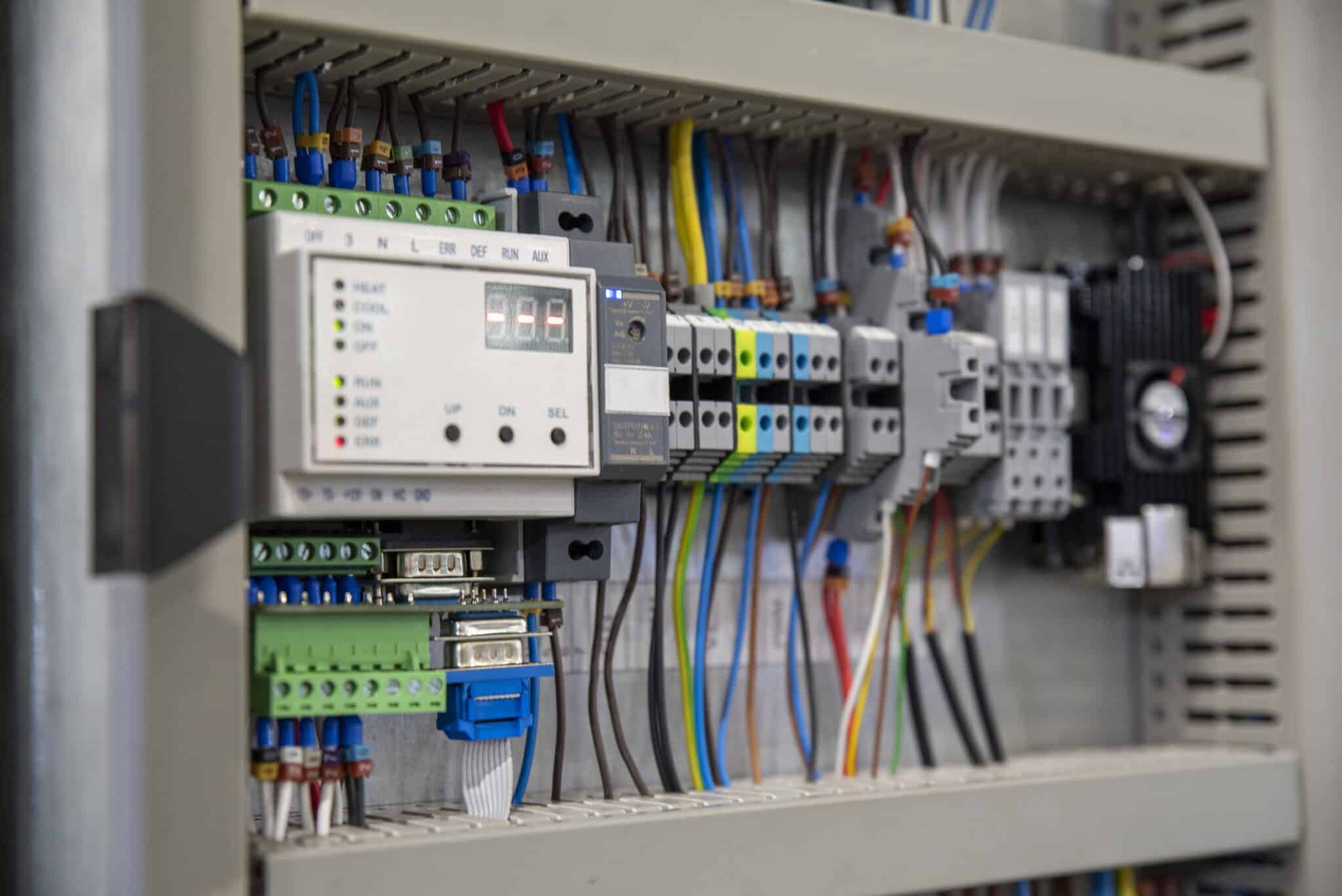
Emergency Electrician: How Often Should You Call for Electrical Safety Inspections?
Like any other electrical appliance or object, all electrical wiring and installation deteriorate with use and age. However, some homeowners overlook the wiring condition, possibly because they are out of sight. Most will have electrical safety inspections once they notice that the fuse is already blown or the breaker is frequently. Others will go ahead and set the breaker again, all by themselves. Unfortunately, this risky undertaking could result in electrical shocks and electrocution. Failure to conduct electrical safety inspections will most certainly result in you calling an emergency electrician. Did you know electrical faults are the most common cause of house fires? Regular inspection of your wiring and electrical installations could catch issues that might cause this, such as arcing.
Electrical Safety Inspection Checklist
As explained above, electrical safety should be included in your list of priorities. While electrical inspection might seem like any other routine chore, it is more than that. There are some electrical hazards that, at first, aren’t that obvious. However, they can potentially grow into a worse problem down the line if left unchecked. That is when you might regret wishing you had called an electrician to service your electrical installations and/or wiring. A routine electrical safety inspection includes:
- Identification of potential electrical hazards
- Ensuring all your installations and wiring are up to code
- Testing the carbon monoxide and fire alarms
- Making sure GFCI outlets are properly wired
- Testing the electrical meter and safety switches
- Inspection of your electrical panel by evaluating the circuit breaker and fuse capacity
- Checking for any signs or arcing
- Ensuring no loose wires are present
- Ensuring that all outlets are properly grounded
- Evaluating and maintaining the repairs made in the past
This list is in no way exhaustive. Your emergency electrician will inspect many other parts and connections to ensure that your electrical wiring and installations are in good shape. It ensures your home and family are safe from the numerous electrical hazards.
How Often Should You Have Electrical Safety Inspections?
Some homeowners wait too long before calling electricians for electrical safety inspections. You want to ensure that all your appliances are running, and the best way of achieving that is by having the electrical installations and wiring inspected. But how often should your electrical system be inspected? Most professionals recommend that you have an electrical system inspection after every 3-5 years at the minimum. However, having an annual inspection will ensure that your electrical system is pulling its weight. However, you might have to call an emergency electrician for inspection if:
- Your breaker is tripping frequently
- You have bought a previously owned home recently
- Major appliances are experiencing electrical issues at your home
- Your home is over 40 years old
- You’ve had a major renovation or remodeling that could have affected your electrical system
- There has been flooding after water leaks or storms
- You have experienced a power outage caused by lightning
However, preventative care is the best care you can give your electrical system. Hence, if you cannot recall when you last had the system inspected, you should enlist a reliable electrician to check your installations, wiring, and outlets. These professionals will test all the main and most vulnerable parts, such as outlets, to ensure they are safe. Besides protecting your home and family from electrical hazards, an inspection from a licensed electrician means you’ll have a better idea of the workings of your system.
Are there Benefits to Electrical Safety Inspections?
Upkeeping and maintenance tasks are endless for a homeowner. There is a lot to consider for your family and yourself. However, this doesn’t mean you should forget about your electrical system. You must keep electrical safety in mind, and that is where electrical safety inspections are crucial. Below are the main benefits;
Saves You Money
While they might appear to be using your hard-earned cash, electrical safety inspections will save you money in the long run. Inspections help homeowners identify the developing issues before they become expensive major problems. For instance, damaged wires might spark through arcing and result in electrical fires. Electronics also can fail when your electrical system doesn’t work properly. In the end, all the things above will cost you more.
Helps Avert Issues With Electronics
The last thing you want is a malfunctioning system. However, electrical safety inspections will help you avert any issues with your electronics that could arise from a lack of maintenance. Electronic gadgets such as appliances and computers could be damaged if faulty wiring. You can avoid this by scheduling an electrical inspection.
Catching Problems Early
Regular inspections will catch developing problems before they worsen into expensive repair issues that require the attention of an emergency electrician. The professional might find frayed wires during the inspection and immediately fix them. Unfortunately, if you didn’t have an electrical inspection to catch the damage, it could cause a house fire. Between 2015 and 2019, malfunctions and electrical failures were the second leading cause of electrical home fires. They accounted for 13% of the total number of home fires.
Ensures Your Electrical System Is Efficient
Regular electrical inspections will ensure your electrical system runs at optimal performance. Since the inspections will help uncover any failures or problems early, they will keep the electricity costs manageable and increase the overall service life of your electronics.
Follows Electrical Standards
All electricians must follow the National Electric Code when conducting electrical safety inspections. NEC is a benchmark for electrical safety for protecting property and people from different electrical hazards. There are local and national standards that homeowners must follow. When you hire a licensed electrician, you can rest assured that they will follow the local and national codes when conducting electrical inspections, ensuring your safety and that of your property.
Contact Us for Electrical Safety Inspection
Do you need your electrical system inspected? Contact us at Buffalo Electric. Our well-equipped, seasoned, and licensed technicians install, inspect, and service electrical installations and wiring.
See our most recent blog on this topic here.
Check out our reviews here.
Photo By Filip_Krstic at iStock

Safety Measures to Take Before an Emergency Electrician Arrives
Of all the emergencies in your home, an electrical emergency is among the most dangerous. Electrical emergencies can cause fires, shocks, and even fatalities if not handled properly. Therefore, it is crucial to know how to stay safe and minimize the risks before the emergency electrician arrives. This blog post will discuss the safety measures to take when facing an electrical emergency. These measures will ensure your safety and help the electrician do their job more efficiently. But first, let’s take a look at the situations that are considered electrical emergencies.
What Situations Are Considered Electrical Emergencies
Many electrical emergencies cannot be objectively defined. For instance, a young couple who loses electricity at home will want the issue fixed as soon as possible, but they can likely make do until normal business hours. However, a person who uses a stairlift to get up and down the stairs would need the power loss addressed as soon as possible, as they would be virtually stuck on either level until the problem was resolved.
However, below are some situations that warrant a call to an emergency electrician.
Buzzing Noise From The Breaker Box
When an issue, such as a short circuit, arises with your electrical system, your breaker box will turn off the power to the affected components. By cutting off the flow of electricity before it can cause harm, circuit breakers save people from getting shocked.
A humming or buzzing noise could indicate that a breaker is trying to trip but is being prevented by a malfunction. This, in turn, raises the possibility that live electricity is present someplace in the house.
Power Outage
A power outage is one of the most common electrical emergencies. As we’ve already established, not everyone considers a power outage an emergency. However, if the blackout is localized to your home, there may be more serious issues, such as with the breaker box, that require immediate attention.
If the outage affects the entire neighborhood, however, there is certainly a problem with the power lines, and you should contact your electricity provider immediately.
Electrical Fire
Any fire caused by an electrical problem should, of course, be dealt with immediately. However, this situation is different because you shouldn’t call your electrician first but rather the emergency services. You’ll have to use your best judgment, but remember that electrical fires spread rapidly, so getting your loved ones to safety is the top priority before calling the fire department. Then, turn off the power if you can.
After the fire has been dealt with, you can call an emergency electrician to inspect your electrical system and determine the fire’s origin.
Burnt Outlets
Burnt outlets are a major safety concern that most people are unaware of. A lot of individuals get shocked when they mistakenly touch burnt outlets. If you notice smoke coming from your outlet or burn marks in the area, you should always avoid touching it. If you must unplug something from it, do so only while wearing nonconductive gear, and don’t plug anything until the electrician gives the all-clear.
Likely, too many devices are plugged into the outlets simultaneously, so the outlet is burning. You should familiarize yourself with the wattage of your outlets in advance and avoid using an adapter with a higher rating. Professionals should be called in to address the root cause of the problem and repair any burned-out outlets.
Electrical Shock
If exposed wires or broken plugs are present, you or someone you know could be seriously injured by coming into contact with electricity. This is extremely risky and could even be fatal. In an electrical shock, the power source should be disconnected and emergency services contacted immediately.
If someone is experiencing an electric shock, STAY AWAY FROM THEM. If they are stuck, you can pry them loose with a plastic or wooden stick, none of which conduct electricity. You can perform CPR, if you know how to, once they are no longer touching the conductive object.
Things To Do Before The Electrician Arrives
Stay Calm
In most cases, panic is counterproductive. Even worse, when stressed out, you’re more prone to forget vital details. Keep your cool and listen for any buzzing sounds, smells of burning, or other warning indicators.
Disconnect Power and Unplug Appliances to Ensure Safety
In an electrical emergency, you first should turn off the electricity at your home’s main breaker, presuming that doing so is not only possible but also safe. This should keep the situation under control while you wait for the emergency electrician to arrive (unless there is an electrical fire). Once that’s done, you can unplug everything that uses electricity. This is crucial if you are experiencing an emergency involving a scent or noise but are unsure of its source.
Clear Out the Area That the Electrician Will Use
Even if you don’t mind paying a higher fee per hour, it’s in your best interest to make your electrician’s job as simple as possible. If you have located the trouble spot, make room for your electrician to work by removing any obstructions.
Put the Kids and the Pets Somewhere Out of Harm’s Way
Again, this is based on the assumption that there is no immediate threat to anyone on your property, as there would be if an electrical fire were present. In that event, your priority should be to get your loved ones to safety. Even if it’s not life-threatening, keep your loved ones and pets away from the problem location, especially while the electrician works on the issue.
Avoid Touching Electrical Objects
It goes without saying, but even if you turn off the electricity, don’t touch any appliances or electrical fixtures. This is particularly true if the issue is a noise emanating from your breaker box, as that would suggest something has shorted someplace.
Keep Emergency Tools Handy
While waiting for the electrician to arrive, you should have a fire extinguisher designed to put out electrical fires, especially if smoke or a burning odor was the original purpose for calling the electrician. A flashlight is also necessary, as you should have turned off the electricity by now.
It’s likely that your electrician already has everything they’ll need to get the job done, but it’s always preferable to err on the side of caution.
Stay Safe, and Act Swiftly
Although it’s natural to panic in the face of an electrical fire or other emergency, staying calm and protecting your loved ones is the priority. While waiting for the electrician, avoid touching anything and have a fire extinguisher handy. And, of course, if there is a fire or an electrical shock, dial 911 immediately!
At Buffalo Electric, we understand the importance of prompt and reliable emergency electrical services. Our team of experienced electricians is available 24/7 to handle any electrical emergency with professionalism, expertise, and care. We prioritize the safety of our clients and strive to provide efficient and effective solutions to any electrical problem. If you’re experiencing an electrical emergency, don’t hesitate to contact us immediately.
See our most recent blog on this topic here.
Photo By AdrianHancu at iStock

Why Should You Have A 24/7 Electrician on Dial?
Whenever things go wrong, they don’t choose the time or place. Unfortunately, this means they will catch you unawares at an inconvenient time or place. Planning ahead could be the key to getting out of the tight spot they push you to. Just as you have a doctor you can contact in emergencies, and you should also have the contact of a reliable 24/7 electrician or even plumber that you can call when your electrical systems and wiring experience issues. Buzzing noises, burning smells, constantly tripping breakers, and electric shocks threaten your family’s well-being. While these are just signs, ignoring or postponing their repairs could worsen the underlying problems. Never attempt DIY repairs on electrical works. Imagine waking up to find your air conditioner isn’t working in the summer or the lights aren’t turning on. While this can be inconvenient and unsettling, you shouldn’t try to repair the underlying problem alone. Instead, you should enlist a professional, and here’s where having the contacts of one that is available 24/7 is critical. Below are the benefits of having a 24/7 electrical technician on the dial.
Peace Of Mind
When you can access electrical services 24/7, you can rest assured that whenever an issue arises, a professional will promptly arrive at your home to attend to it. This peace of mind means that you can carry out tasks without worry. Where you need help installing some electrical appliances, repairs on the existing wiring, or even advice on saving energy, it is comforting to know you do not have to wait till regular office hours to get help. With just one call, the electrical technicians will swing into action.
Overnight Issues
If something goes wrong overnight, waiting till the electrical technicians open in the morning can be stressful and uncomfortable. This could make your kids miss the bus or make you late for work. Because you use a coffee maker or toaster to make breakfast, the regular breakfast routine will be disturbed. Additionally, a lack of power to your air conditioning system could see the temperatures spike, making your sleep uncomfortable. With a 24/7 electrician, you don’t have to suffer all this. If an issue creates a burning smell or smoke, you do not have to wait until regular working hours. 24/7 electrical technicians will be at your home within no time, inspect the electrical system, craft a solution for your issues, and remain with a few hours of slumber before the morning.
Safety
When it comes to electrical work, never try addressing a problem by yourself, no matter how simple it might appear. This is because you could expose yourself to the risk of injuring yourself, shocks, or even electrocution. Instead, always enlist a licensed technician to complete the job. Although this might appear like an additional expense for minor fixes, it can save you money.
Imagine the power goes off in the middle of the night. You diagnose the problem and conclude that the job is simple enough and you can complete it yourself. Remember that you are half awake, only armed with a flashlight so that you can see in darkness. You might touch naked wires unconsciously and electrocute yourself, as you probably cannot see what you are doing. Even if you complete the repair without injuring yourself, an improper repair could still be dangerous. And when you go back to bed, you are suddenly woken up by the smoke alarm as your “repair” has resulted in an even larger problem.
Holidays
Holidays are hectic, with food, gatherings, stress, lights, and celebrations. Holidays are when households typically use more electricity for heating, cooking, and decorative lighting, so having an electrical problem is not unusual. However, finding an electrician to handle your electrical problems can be difficult and expensive because many professionals leave for holidays. Your entire schedule can become messed up if you lose electricity for longer than a few minutes at home. No matter what day of the week or hour it is, having a trusted and qualified electrical technician on call ensures that the problem may be fixed fast.
Response Time
You can wait for a few days to have minor electrical problems addressed. However, more significant issues can also arise and require immediate attention. If you call a regular electrical technician, they could try to cram you in since they are overbooked. You waste the day waiting for the professional to learn they cannot resolve the problem that day. If you have a dependable 24/7 electrical repair technician, they are prepared, equipped, and trained to get to you quickly and discover a quick fix. Call a technician you know will arrive quickly rather than waiting to be “squeezed in”!
Sense of Urgency
24/7 emergency electrical services providers understand the importance of fixing electrical problems quickly. They understand that time is paramount and there is no room for assuming things. They are equipped with tools to make opening, testing, and diagnosing problems easier and faster. Upon diagnosis of the underlying issue, they will professionally, albeit swiftly, fix it to ensure you are up and running within no time. Dedication is a 24/7 electrician’s second nature, and working under the pressure of limited time is what they excel in.
You Do Not Have To Close For Maintenance Work
Regular electrical maintenance is required for your home or business activities to run smoothly. However, closing for maintenance means you’ll incur significant losses in profits. However, hiring a 24/7 electrical technician implies they can do the inspection and maintenance work after business hours. Hence, you don’t have to close your business during working hours for maintenance.
Hiring licensed and certified professionals gives you peace of mind, knowing that your home, appliances, business, or family members will remain safe from potential electrical hazards. Are you looking for a reliable 24/7 electrical service? Contact us at Buffalo Electric to book an appointment.
See our most recent blog on this topic here.
Photo By matdesign24 at iStock

How an Emergency Electrician Can Help You Avoid Electrical Hazards in Your Home or Business
Electricity is essential to our daily lives, powering our homes, businesses, and devices. Electrical problems may pose serious safety risks and disrupt our daily routines. From power outages and electrical fires to faulty wiring and overloaded circuits, electrical hazards can cause property damage, injuries, and even fatalities. That’s where an emergency electrician comes in. With their specialized training, experience, and equipment, an emergency electrician can quickly diagnose and repair electrical issues, ensuring the safety and functionality of your electrical system.
The Role of an Emergency Electrical Service Provider in Detecting and Preventing Electrical Hazards
Emergency electrical service providers are crucial in detecting and preventing electrical hazards in residential, commercial, and industrial settings. These professionals are trained to identify potential risks, perform repairs, and implement preventive measures to ensure the safety of individuals and property. Their roles include:
Inspection and Assessment
Emergency electrical service providers conduct thorough inspections and assessments of electrical systems to identify potential hazards. They examine wiring, circuit breakers, outlets, and other components to ensure they function properly and safely. This process helps to detect any issues that may pose a risk to people or property and allows for timely intervention.
Repair and Maintenance
Regular maintenance prevents electrical hazards. Emergency electrical service providers are skilled in identifying and fixing issues such as damaged wiring, overloaded circuits, and faulty equipment. Addressing these problems quickly helps to minimize the risk of electrical fires, shocks, and other hazards.
Code Compliance
Emergency electrical service providers ensure that electrical systems comply with local, state, and national electrical codes. These codes set safety standards for electrical system design, installation, and maintenance. By adhering to these regulations, electrical contractors help reduce the likelihood of electrical hazards.
Education and Training
Emergency electrical service providers educate clients on properly using and maintaining electrical systems and equipment. This includes providing information on how to avoid overloading circuits, using extension cords safely, and recognizing signs of potential electrical hazards. By empowering clients with knowledge, they help to prevent accidents and injuries.
Emergency Response
An emergency electrician is equipped to respond quickly and effectively in an electrical emergency, such as a fire or power outage. They have the skills and tools to address the situation, minimize damage, and restore power safely.
Upgrading Outdated Systems
Emergency electrical service providers can identify and upgrade outdated electrical systems that may pose a risk. This includes replacing old wiring, updating circuit breakers, and installing modern safety devices. These upgrades help to prevent electrical hazards and improve overall system performance.
Preventive Measures
Emergency electrical service providers implement preventive measures to reduce the likelihood of electrical hazards. This may involve installing dedicated circuits for high-demand appliances, ensuring proper grounding, and maintaining a safe distance between electrical components and flammable materials.
Testing and Monitoring
Regular testing and monitoring of electrical systems are essential for detecting and preventing hazards. Emergency electrical service providers use specialized equipment to test for issues such as voltage fluctuations, insulation degradation, and circuit overloads. This information helps them to identify potential problems and take corrective action.
Customized Solutions
Emergency electrical service providers tailor their services to each client’s unique needs. This includes designing and installing electrical systems that meet specific safety requirements and providing ongoing support and maintenance to ensure continued safety and performance.
Criteria for Selecting an Emergency Electrical Service Provider
Selecting an emergency electrical service provider is a crucial decision that can impact the safety and functionality of your home or business. When faced with an electrical emergency, you need a reliable, skilled, and efficient professional to address the issue promptly. Here are detailed points to consider when choosing an emergency electrical service provider:
License and Certification
Ensure that the service provider holds a valid license and certification to perform electrical work. This guarantees that they have undergone the necessary training and adhere to industry standards, ensuring the safety and quality of their work.
Experience
Find a service provider who is experienced in dealing with electrical emergencies. Experienced professionals can quickly diagnose and resolve issues, minimizing downtime and potential damage to your property. Buffalo Electric has been in the industry for a while, and its employees have handled various electrical emergencies.
Availability
An emergency electrical service provider should be available 24/7 to address any issues that may arise. This ensures you can rely on them to respond promptly, regardless of the time or day. Buffalo Electric has professionals always available to respond to client needs.
Response Time
Select a provider with a proven track record of responding quickly to calls, as this can help prevent further damage and reduce the risk of accidents. Delayed responses to electrical emergencies can be fatal. Buffalo Electric responds quickly to local clients during emergencies.
Local Presence
A local service provider is more likely to know your area’s specific electrical requirements and regulations. Additionally, their proximity can contribute to faster response times and more personalized service.
Reputation
Research the provider’s reputation by reading online reviews and testimonials. A reputable provider will have a history of satisfied customers and a strong commitment to quality service.
Communication
Effective communication is essential during an emergency. Choose a provider that is easy to reach and communicates clearly about the issue, the required repairs, and any potential costs.
Pricing
Choosing a provider that offers transparent and competitive pricing is essential. Request a detailed quote before any work begins to avoid unexpected expenses.
Safety Measures
A reliable emergency electrical service provider should prioritize safety. Ensure they follow proper safety protocols and use high-quality materials to minimize risks.
Warranty and Guarantees
Select a provider that offers warranties or guarantees on their work. This demonstrates their confidence in the quality of their services and provides you with peace of mind.
Customer Service
Lastly, consider the provider’s commitment to customer satisfaction. A professional who is courteous, attentive, and responsive to your needs will make the emergency repair process less stressful and more efficient.
Protect your property and loved ones from electrical hazards by calling our company, Buffalo Electric, your reliable emergency electrician. We offer quick response, quality workmanship, and reliability. Call us today and experience quality services.
See our most recent blog on this topic here.
Photo By Luca Piccini Basile at iStock

Molded Case Circuit Breaker Vs. Conventional Circuit Breaker; Understanding Their Differences As Explained by Your Experienced Electrician
Electricity is a vital factor in the operation and comfort of your home. Not only does it help with lighting, but it also facilitates essential aspects such as your health by warming your home in the rapidly changing weather seasons. Electricity also helps make life easier through washing machines and fridges. Have you ever considered what life would be like without electricity? Unfortunately, this world is complex and very dangerous for your household. Therefore, you need the help of an electrician to fortify your home from all these dangers. A professional in the field will also help you decide on the best protective measures for your home. This article will highlight the differences between conventional and Molded Case Circuit Breakers to help you better understand these electrical devices.
Circuit Breaker
A circuit breaker is a protective safety device that guards your home’s electrical system against short circuits and overloads. Conventional and Molded Case Circuit Breakers (MCCB) are the primary circuit breakers. Conventional circuit breakers are ideal for homes. They protect residential structures from shock hazards, overloads, and fire. Conversely, molded case circuit breakers are best for commercial and industrial settings. This is because they have a robust design and an increased carrying capacity.
Molded Case Circuit Breaker
A Molded Case Circuit Breaker is a specialized circuit breaker that provides enhanced reliability and protection for electrical systems. This circuit breaker type features a molded case that helps dispose of heat, keeping the breaker cool. It also houses its internal components, which protects them from damage. Conversely, conventional circuit breakers have a lower level of protection since they lack the molded casing. In addition, the traditional circuit breaker does not have safety features such as current limiting capabilities or trip indicators.
What is a Molded Case Circuit Breaker?
An MCCB is an electrical device that safeguards and protects an electrical circuit from faults and overloads. When searching for an overcurrent protection device for your electrical system, an electrician can use the MCCB as the main switch in your home’s circuit breaker panel. This circuit breaker protects your home by detecting an overcurrent or fault in your system and interrupting its flow. Since these devices come in ratings ranging from 30A to over 6000A, it is best to consult a professional on the best type for your home before purchase. In addition, MCCBs come in different trip characteristics such as long-time delay, short-time delay, instantaneous trip, and adjustable trip settings. Notably, when buying an MCCB, ensure that it is certified.
Uses Of Molded Case Circuit Breakers
The primary use of an MCCB is to protect electrical circuits from short circuits and overcurrent. Therefore, this makes it ideal for residential, industrial, and commercial settings. However, due to their increased current carrying capacities and robust designs, this circuit breaker is primarily used in commercial and industrial electrical circuits.
In addition to the protection of electrical circuits, molded case circuit breakers can be used for ground fault protection and motor overload protection in single-phase and three-phase systems. Since the MCCB can carry current even after an interruption, this makes them very reliable. Therefore, they are also suitable for electrical circuits where power interruptions are undesired, such as elevators, medical equipment, and HVAC systems.
What is A Conventional Circuit Breaker?
A conventional circuit breaker is an electrical protection device that shields electrical circuits from short circuits and overload damage. In the event of a short circuit or an overload, this device detects it and interrupts the power flow to the system. Therefore, a traditional circuit breaker is an ideal choice if you are looking for an electrical overload protection device for your home. It will protect your home from electrical fires keeping those in your home safe. Conventional circuit breakers are also helpful in industries to protect machines from overloading. These circuit breakers come in different configurations and settings, making them applicable to other power sources and applications. Therefore, consult an electrician when searching for a traditional circuit breaker for the best configuration circuit breaker.
Uses of Conventional Circuit Breakers
A conventional circuit breaker disconnects the power supply to the electric circuit when it detects a short circuit or an overload. Therefore, they are ideal for residential, industrial, and commercial settings to prevent damage caused by power surges, protect people from electric shock, and prevent fires. When used at home, an electrician will install conventional circuit breakers in the main circuit breaker box. The central panel comprises small boxes, each containing different circuit breakers for other parts of the house.
Therefore, they have clear labels for easy identification. Consequently, during a short circuit or an overload in a specific area, the circuit breaker to that area will trip without interfering with the rest of the system. Therefore, the breaker prevents further damage from happening in that area by tripping and cutting its power supply. Conventional breakers are also used in industrial and commercial electrical circuits to protect primary systems from short-circuit and overload damages. However, these breakers have higher voltages due to the power rating in these systems. These large-scale breakers are located in the Main Distribution Board (MBD) for efficient operation.
Which is An Ideal choice Between MCCB and Conventional Circuit Breakers?
When looking for a protection device for sensitive appliances, the MCCB is an ideal choice. MCCB will safeguard your electrical equipment from current or voltage spikes. It is also a good choice for short circuit and overload protection in large electrical systems such as commercial buildings and warehouses. Conversely, a conventional circuit breaker is ideal for light electrical circuits like those found in residential buildings.
The primary purpose of any circuit breaker is to protect the electrical circuit and components against overload and short circuits. Are you looking to buy a circuit breaker and are undecided on which to purchase? Contact us at Buffalo Electric for advice on the best breakers.
See our most recent blog on this topic here.








